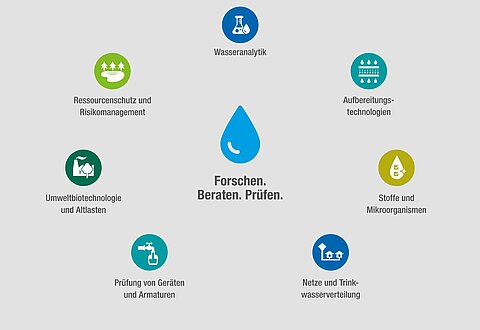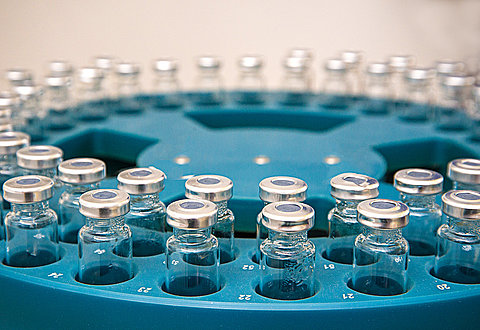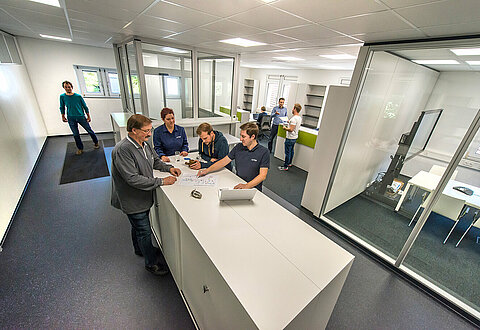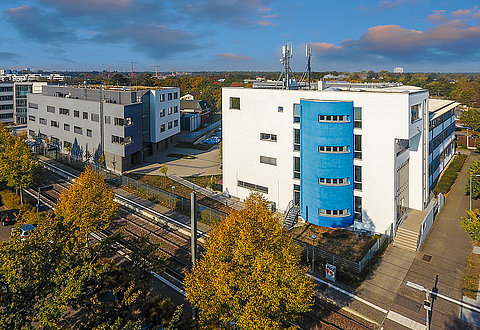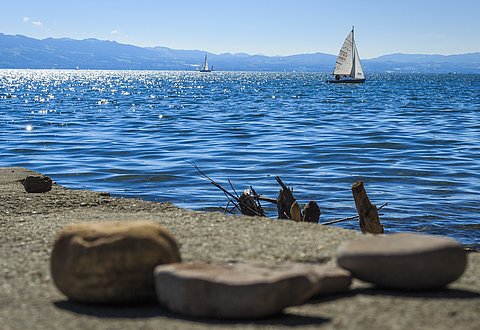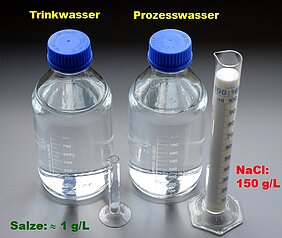The project consortium pursues the vision of reuse industrial water flows as completely as possible in order to relieve natural water resources. The task of TZW is the development of an online process monitoring for organic trace substances in highly saline matrices.
Increasing water scarcity increases the need to reuse saline water and to recycle the removed constituents at the same time. Currently, more than 6 million tons of chloride are discharged annually into surface waters via wastewater in Germany. Process wastewater and partial streams of existing treatment processes as well as saline wastewater from stockpiles or saline groundwater are the most relevant sources.The overall objective of the project is to establish a sound decision-making basis for the implementation of salt and water recovery processes on a production scale.
The work of TZW is concerned with the aspects of monitoring and quality assurance and comprises two focal points:
- Online analytical methods using ion chromatography (TZW Karlsruhe): For the recycling of highly saline water from polymer production for chlor-alkali electrolysis, certain quality parameters must be maintained. In particular, the contents of specific organic impurities (e.g. ionic nitrogen compounds) must be below critical levels, otherwise the downstream process is jeopardized. In the already completed Re-Salt project (BMBF), ion chromatography with conductivity detection was found to be the best method for online analysis of this parameter (IC-CD), after interfering components (sodium ions) could be effectively separated via a special online solid phase extraction. In the RIKovery project, the existing laboratory method is to be further developed into an online method that analyzes this very important quality parameter automatically in the production plant.
- Automated UV and fluorescence measurements in salt water matrix for the detection of aromatic compounds in process water (TZW Dresden): The aim of the sub-work package is to develop methods for the detection of aniline, phenol and bisphenol A using optical spectrometry. TZW Dresden has many years of expertise in absorption and fluorescence spectroscopy as well as chemometric data evaluation. In the completed Re-Salt project, the feasibility in principle for the detection of the three compounds mentioned by means of absorption and fluorescence spectroscopy has already been demonstrated. Within the framework of the RIKovery project, the methodology is to be further developed and converted into a process-suitable method. The measurement technique is to be combined with machine learning methods.
Once all analytical tools have been developed, the final stage of the project will involve a joint on-site measurement campaign at a Covestro site.


![[Translate to English:] Prüfstelle-Produktprüfung_Teststand Test centre and product testing](/fileadmin/_processed_/0/9/csm_TZW-Karlsruhe_Pruefung_Geraete-Teststand_444204ae51.jpg)
















